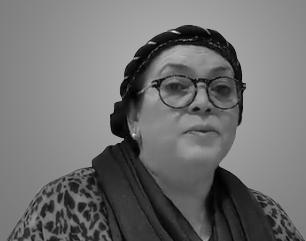
5 minute read
Arifa’s Story: A Refugee from Afghanistan
Arifa's Story:
A Refugee from Afghanistan
by Emelia Haskey
Every year on the 13th of August, Arifa Barekzai celebrates the day she arrived in Australia, having fled from Afghanistan as it came under the control of the Mujahideen, and later the Taliban. This year marks a poignant anniversary – it’s been twenty years since she escaped.
‘I celebrate it every year as if it was my birthday. It was my new life. Everyone who comes here will have a new life – especially women,’ said Arifa.
She was born in a small village in Afghanistan in 1961, originally raised by her father and stepmother before embarking with her sister’s husband – a high ranking police officer – to travel and study at different schools all around the country. Arifa was bright, other students used to beg her to do their homework for them. By the time she had finished her final year of high school, she applied to study at the Stavropol State Pedagogical Institute in Russia to complete a Diploma of Russian Language and Literature in 1984. However after returning to Afghanistan and working as a Russian interpreter in 1988, the country grew more and more unstable, and by the time Russia had ended its invasion of Afghanistan, civil war had broken out. As an educated and modern woman, Arifa was targeted by the Mujahedeen. ‘As women we faced lots of penalties … we couldn’t wear skirts or sleeveless shirts and many times men with guns came to my house to try to get me to marry one of them. In front of me I watched people die – one rocket hit a place near us – all the houses were full of human bodies. I saw a child hanging from a tree. Every time I go to sleep my eyes close and I remember that child.’ In 1992, Arifa, with her brother’s widow and her son realised it had become too dangerous to stay in Afghanistan, and they fled their home, crossing the border on foot into Pakistan where they ended up living for the next decade.
This was not without difficulty. They were often stopped and harassed by police about their visas, and struggled to make enough money to survive. It was by chance that Arifa discovered a way out of Pakistan. ‘We went to do some food shopping and the shopkeeper suggested we line up to apply for this [refugee] visa. So we went to the visa office at midnight … we waited until nine o’clock in the morning because of the big queue. We went together but they didn’t accept us together – their visa was rejected, but mine was accepted to go to Australia. But I couldn’t tell them – I escaped. It was confidential, only a few friends and neighbours knew.’ On the plane to Australia, Arifa cried for the entire journey. When she arrived in Australia, she was placed in Anglicare accommodation under the care of the Migrant Resource Centre. The centre staff gave her the nickname ‘the crying lady’ – whenever they asked her how
she was, she started crying. She eventually became a volunteer for the centre, helping other Afghan refugees settle into Australia. ‘It gave me a little bit of power – it gave me confidence, that I could do some things.’ Starting work as a translator and moving into public housing gave Arifa some stability, as she slowly began to make friends and adjust to life in Australia. The memories of her past loomed over her, but a fragile peace had arrived in Afghanistan, and she was able to visit and reunite with her family members. Her favourite memories are of those times. When Afghanistan fell to the Taliban last year, her world was once again shattered.
‘I didn’t sleep for a week. I was walking around all night. I made mistakes with my job, I was a mess. I feel sorry for those with knowledge, and talent and education, because Afghanistan is gone. I have three girls over there – two nieces and my grandniece. They cannot study or work, their family is looking after them so they do not kill themselves. I am talking with them until two or three in the morning, because they are scared that one day one of the Taliban will come to the door and ask them to get married.’
Her grand-niece is an avid drawer, and has been documenting the situation in Kabul through her art. The Taliban recently raided the house and destroyed all of her work, and attacked her father in front of his family. This is the everyday reality for people living all over Afghanistan. When asked what her hope was for this article, Arifa was clear.
‘I would like everyone who reads this story to put their hand up to help girls in Afghanistan. They have no income, so financial help is best. Everything is two or three times more expensive. Anybody can sponsor [someone from Afghanistan] to come here. This will give them another life.’ Arifa dreams of being able to bring her nieces and grand-niece to Australia to live with her, but has struggled to achieve that dream. She worries she will eventually have to stop working soon because of the toll on her body, even though much of the money she makes is all sent to her family in Afghanistan. By telling her story, her cry for the people of Afghanistan will not go unheard.


Arifa Barekzai


